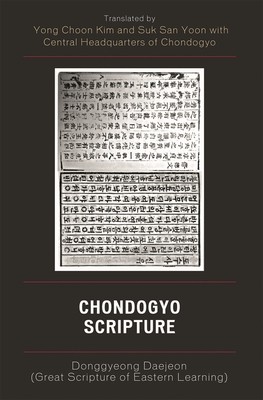
- We will send in 10–14 business days.
- Publisher: University Press of America
- ISBN-10: 0761838023
- ISBN-13: 9780761838029
- Format: 16.2 x 22.9 x 0.8 cm, softcover
- Language: English
- SAVE -10% with code: EXTRA
Chondogyo Scripture (e-book) (used book) | bookbook.eu
Reviews
Description
Chondogyo is a unique and indigenous religion of Korea founded in 1860 by Choe Je-u, better known as Suun, his pen name. Chondogyo means "the Religion of Heavenly Way." Originally called Donghak, meaning "Eastern leaning," the religious movement is regarded as one of the most important in Korean history, with a particular impact on modern Korean society and politics. Its scripture has played a foundational and essential role in the belief system of Chondogyo, containing Suun's ideas about God, man, and the world, as well as his own religious experience. This translation represents the only complete translation of Donggyeong Daejeon with notes in English. The study of Chondogyo has been limited in the West due to its lack of circulation in Western languages. With this translation, a main part of the Chondogyo literature is available to the worldwide community of scholars and students engaged in the study of this important Korean religion. This work, therefore, makes a significant contribution to the scholarship of world religions.
EXTRA 10 % discount with code: EXTRA
The promotion ends in 10d.22:58:35
The discount code is valid when purchasing from 10 €. Discounts do not stack.
- Publisher: University Press of America
- ISBN-10: 0761838023
- ISBN-13: 9780761838029
- Format: 16.2 x 22.9 x 0.8 cm, softcover
- Language: English English
Chondogyo is a unique and indigenous religion of Korea founded in 1860 by Choe Je-u, better known as Suun, his pen name. Chondogyo means "the Religion of Heavenly Way." Originally called Donghak, meaning "Eastern leaning," the religious movement is regarded as one of the most important in Korean history, with a particular impact on modern Korean society and politics. Its scripture has played a foundational and essential role in the belief system of Chondogyo, containing Suun's ideas about God, man, and the world, as well as his own religious experience. This translation represents the only complete translation of Donggyeong Daejeon with notes in English. The study of Chondogyo has been limited in the West due to its lack of circulation in Western languages. With this translation, a main part of the Chondogyo literature is available to the worldwide community of scholars and students engaged in the study of this important Korean religion. This work, therefore, makes a significant contribution to the scholarship of world religions.


Reviews